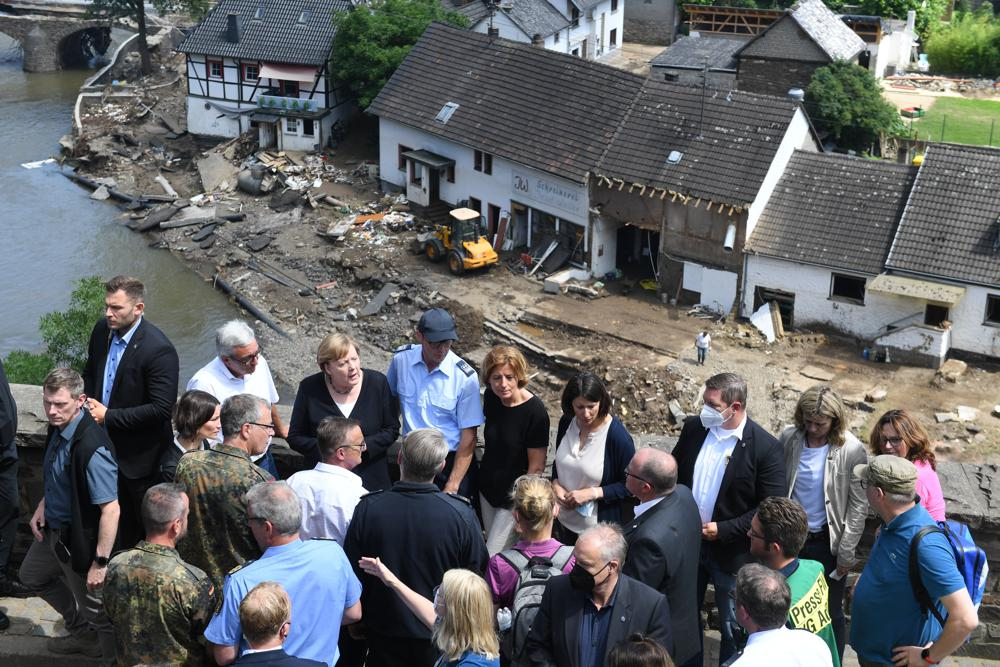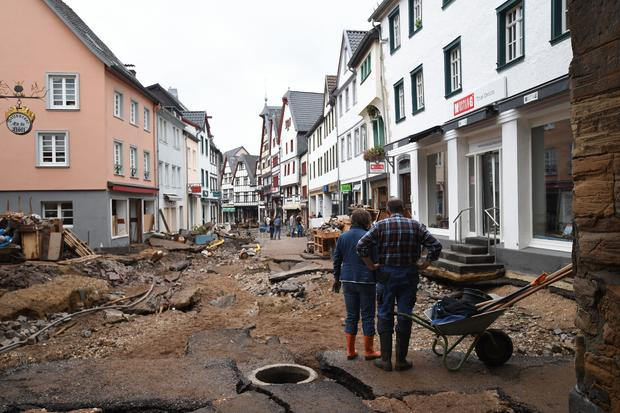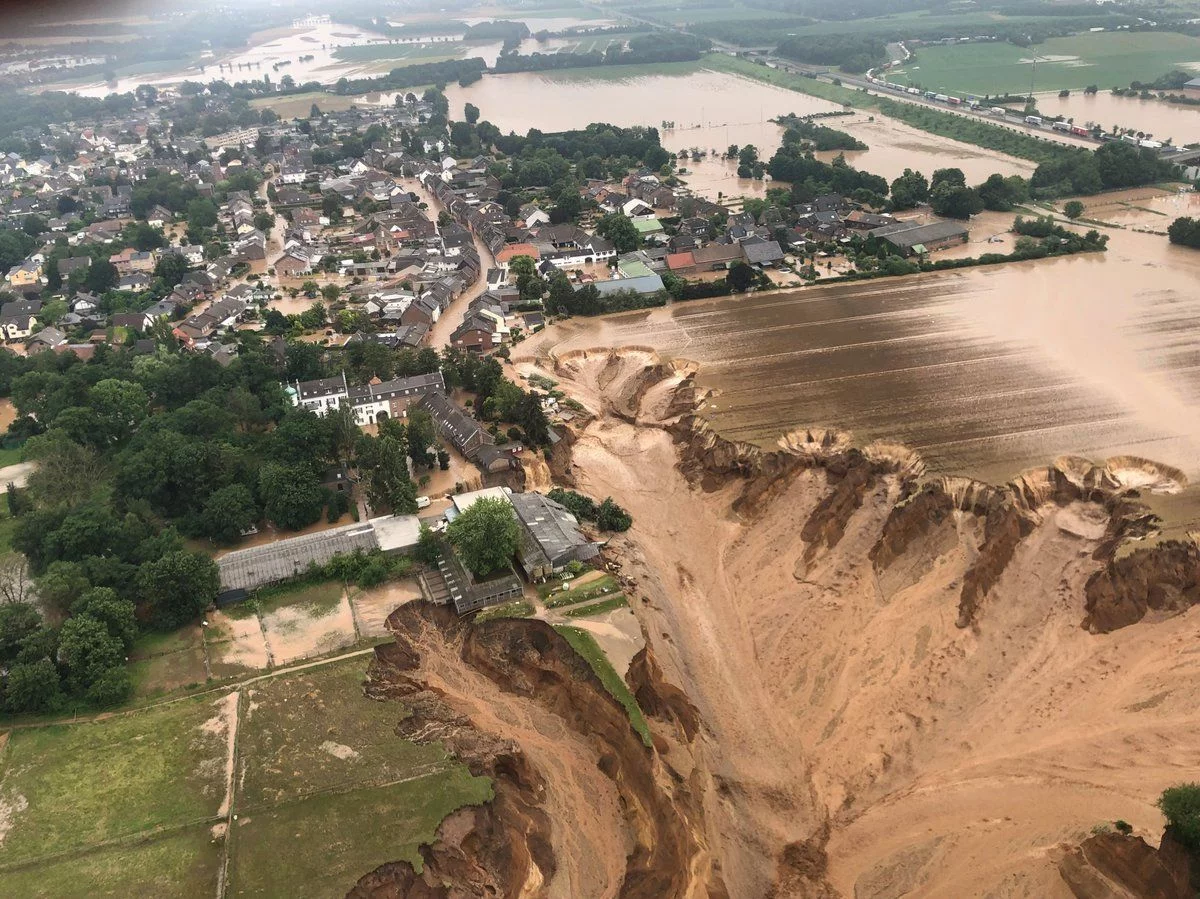Europe's Travel Industry Soars Heavily as Covid-19 Surges Again
Some countries in Europe — Greece, Spain and Portugal, for example — rely on tourism to boost economic growth with the prosperity of thousands of businesses, livelihoods and communities tied to the success or failure of the season.
As Covid vaccines rolled out across Europe, hopes were high for a rebound in summer tourism, according to CNBC.
Instead, the season is looking highly uncertain as the delta variant surges in Europe, prompting a plethora of varying rules and restrictions, traffic-light systems designating country risk as well as possible quarantines and vaccine entry requirements.
Fourth wave?
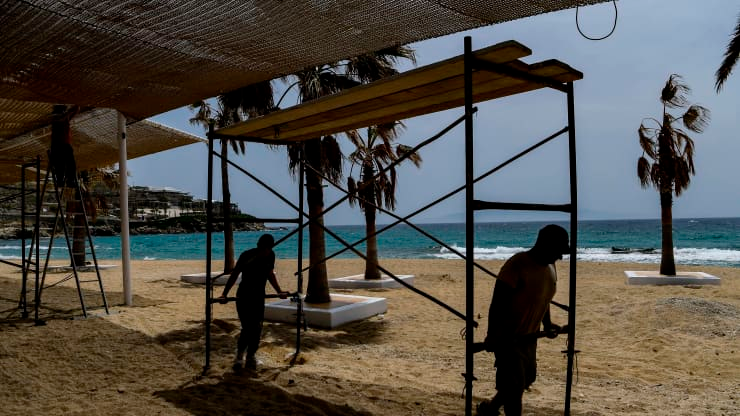 |
| Workers carry a scaffolding on “Paradise” beach in the Greek Cycladic island of Mykonos in 2020. The island is traditionally crowded with wealthy foreigners but turned into a ghost island last year. ARIS MESSINIS | AFP | Getty Images |
Travel within Europe these days is certainly not for the faint hearted, in more ways than one. The Covid infection rate has surged across the region as the highly infectious delta variant has swept the globe.
As with the previous alpha variant, which delta has now usurped, the U.K. was something of a harbinger of doom when it came to what the rest of Europe could expect. Britain saw a further Covid wave at the start of the year caused by the alpha variant and is now seeing another wave with delta.
Despite efforts on the continent to hold back the variant, the inevitable spread has taken place, with the strain now accounting for the majority of new infections from country to country.
The Netherlands and Spain have seen big surges in cases, largely attributed to the nighttime sector after both countries reopened their nightclubs in late June, only to reverse course two weeks later. France declared it was entering a fourth wave of the pandemic earlier this week, with government spokesman Gabriel Attal sounding the alarm.
“We have entered a fourth wave. The dynamics of the epidemic are extremely strong. We see a faster wave, and a sharper rise than all the previous ones,” Atta; said Monday. “The incidence rate continues to explode. ... A rise so big, so sudden, we haven’t seen that since the beginning of the pandemic.”
Tourism and airline stocks took a beating at the start of the week when global markets plunged sharply on renewed fears for the global recovery. Low-cost European airlines EasyJet and Ryanair were among the stocks seeing pronounced declines. Shares of easyJet, for example, were trading at 842.20 pence on Friday but plunged to 758.20 pence by Monday early afternoon.
More countries marked “Red”
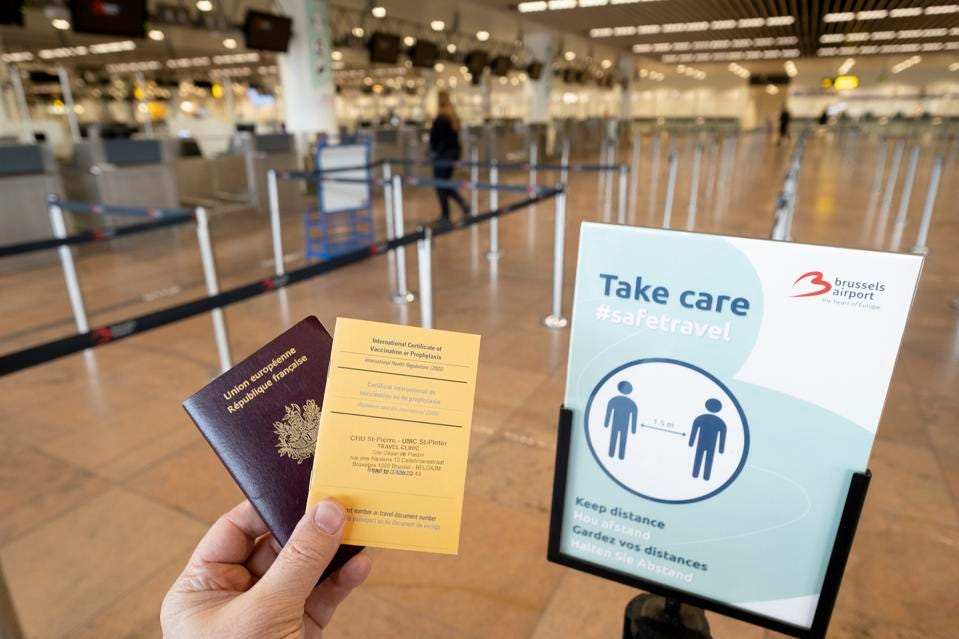 |
| A French passport and an International Certificate of Vaccination. Photo by Thierry Monasse GETTY IMAGES |
The European Center For Decease Prevention has now put the Netherlands, Spain, Portugal, Luxembourg, Cyprus and parts of Greece and Denmark in the list of code red (high-risk) countries due to the high number of coronavirus infections.
“There has been a 64.3% increase of weekly COVID-19 cases compared to last week, according to ECDC’s epidemic intelligence and TESSy data reported by EU and EEA countries, as of 15 July 2021,” the institution warned.
Now each country will have to decide what restrictions they apply to travellers from “red marked” countries. This could include a quarantine obligation or an entry ban. Some might decide the “Malta way” and rule according to people having or not gotten the vaccine.
A country is labelled red if there are 200 to 499 infections per 100,000 inhabitants in the past 14 days, according to the EDCD. Dark red is if there are 500 or more infections per 100,000.
“An increasing trend is observed in 20 countries. In the most affected, the steepest increases and highest notification rates were reported among 15 to 24-year-olds, with limited increases in persons aged over 65 years.”
The paradox? What is happening is in large part the result of the region’s relaxation of restrictions and the opening of borders in anticipation of tourism, summer vacations and related events.
Complex travel
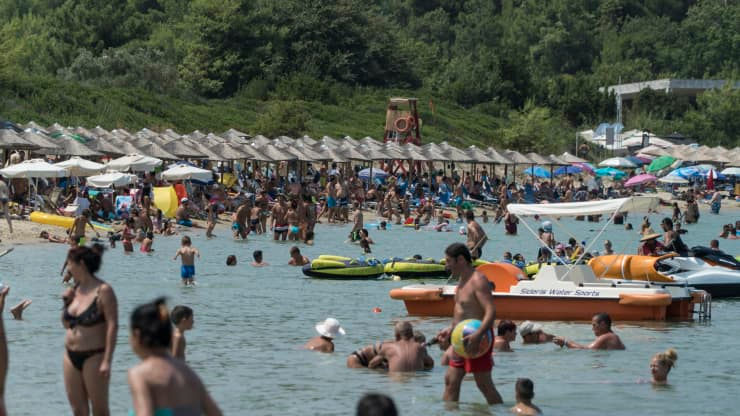 |
| Busier times in Paliouri beach, Greece: This image was taken in 2017 which was considered to be one of the best performing summers, in terms of visitors arrivals. NurPhoto | NurPhoto | Getty Images |
Anyone making last-minute plans for a European vacation this year should brace themselves for an often confusing, complex and rather stressful experience — and that’s before you’ve even stepped off the plane.
Take going to Greece from the U.K. — a vacation that 3.4 million Brits did in 2019, official statistics show — as a general example of the complexities of going on vacation in these troubled times:
Greece is allowing visitors from the U.K. if they can provide proof of a negative Covid-19 PCR test, undertaken within 72 hours before arrival into the country or proof of a negative rapid antigen test undertaken by an authorized lab within 48 hours before the scheduled flight; or proof of two doses of a Covid vaccine completed at least 14 days before travel.
Before you even get to Greece, however, you have to fill in a passenger locator form no later than 11:59 p.m. (local time) of the day before arriving stating your vaccination status, vacation address and next of kin. Then before returning to the U.K., holiday makers have to do a PCR test and fill out another passenger locator form and then within two days after arriving back in the U.K. do a further PCR test or quarantine for 10 days.
All that, and Greece is actually one of the easier places to go on vacation this year.
Like its fellow European countries, Greece has not escaped the somewhat inevitable rise in Covid cases as the economy (particularly the island nighttime economy) has opened up. Still, the daily number of cases appears small compared with, say, France or the U.K. On Wednesday, Greece reported 2,972 new cases, 19 of which were located after checks at the country’s borders.
Wolfango Piccoli, co-president of risk consultancy Teneo Intelligence, noted on Wednesday that the resurgence of Covid in Greece “poses new challenges, especially with regard to another meager tourism season and the economic consequences that will follow,” circumstances that put pressure on Prime Minister Kyriakos Mitsotakis.
“Mitsotakis had been hoping to leave the pandemic behind this summer as his center-right government reached the midway point of its four-year term. He was aiming to oversee an improvement in tourism receipts, the launch of Greece’s recovery plan and a return to growth. However, Covid-19 numbers have risen significantly in recent weeks and the vital tourism sector is already pushing for more state support in the autumn amid fears of more disappointing visitor numbers this year,” Piccoli noted.
Worn out from Covid, people yearn for summer freedom
The worrisome calls to a confusing reality come as the world is exhausted from the pandemic and the restrictive health and other measures imposed to control it.
Virtually everywhere, as the latest sports mega-events such as soccer’s recently-completed UEFA European Football Championship show, people are clamoring for restrictions to be lifted, even as the need to curb the virus has never been greater.
In Europe, Malta is in good company in reevaluating decisions related to “summer freedom.”
 | 4 Extraordrinary Coffee Shops In The Heart of St. Petersburg On the streets of a busy Saint Petersburg, there are lovely coffee shops with extraordrinary style that make them a delight for tourists to visit, ... |
 | 7 Most Beautiful and Attractive Clifftop Hotels In The World Hotels are not just a place to stay, it is also a place to enjoy the time of your life with your family and friends. ... |
 | Japan: 300-year-old Weeping Cherry Blossom Tree With Acient Forklore Miharu Takizakura (also called Matabei Sakura); the huge weeping cherry tree, is one of the three giant cherry trees in Japan. Its dreamy and majestic ... |
Recommended
 World
World
India strikes back at terrorists with Operation Sindoor
 World
World
India sending Holy Relics of Lord Buddha to Vietnam a special gesture, has generated tremendous spiritual faith: Kiren Rijiju
 World
World
Why the India-US Sonobuoy Co-Production Agreement Matters
 World
World
Vietnam’s 50-year Reunification Celebration Garners Argentine Press’s Attention
 World
World
"Will continue offering our full support to Indian govt": US FBI Director after Pahalgam attack
 World
World
"Great Leader": JD Vance Lauds PM Modi During His India Visit
 World
World
Trump’s Tariff Pause: A Strategic Move from “The Art of the Deal”?
 World
World

